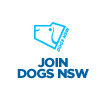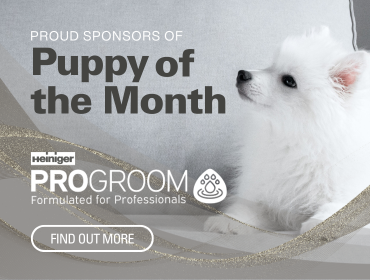Toilet training
Tackle your pup’s toilet habits right from start
Bad habits are easily and quickly established but very difficult to break, so to successfully housetrain your puppy you must put the time, effort and consistency in as early as possible. As a general guide, assuming your new puppy comes home at about eight weeks old, you have about a month to train it.
If a pup isn’t toilet trained by 12 weeks of age, it will become an ‘indiscriminate toileter’, a pup that goes wherever it likes. It also becomes increasingly difficult to modify this behaviour after the pup is 12 weeks old.
Line a litter tray with dirt or turf and place it in the opposite corner to the bed and feeding items – as far away from ‘home’ as possible. It’s natural for puppies to toilet away from their sleeping and eating areas. You can cover the floor with newspaper for your convenience, but you now want it to think of grass as a toilet, so it is best not to.
When you’re cutting your turf for the litter, try and obtain a slice of turf from your yard that either your pup or another dog has wet on already – this will attract your pup there. This turf can be replaced in your yard and new turf cut as the pup gets the idea. Any droppings should be removed as soon as you find them, and the turf should be replaced regularly – if it becomes saturated the puppy will not want to use it.
Going outside
When you take your puppy outside, run outside and give it a sense of urgency. Use a leash so that it can’t get distracted, and take your puppy somewhere it has been to the toilet before if possible. Stand still and be patient as you could be there for ten minutes or so. Don’t let the puppy engage you in play. It will wander back and forth and start to sniff the ground; don’t speak or you’ll disturb its concentration. Choose a word that you want to train your dog to recognise as a prompt to go to the toilet, and say this word as soon as it starts to go.
The relief of being empty should be reward enough to train it, but you can give a tiny, tasty treat immediately afterwards if you like. Unless it is the middle of the night, take the leash off and play with your pup for a few minutes before going back inside. By staying and playing, you encourage toileting first, then playtime. If playtime happens first, the pup thinks going outside means playtime, whereas you need the first priority to be toileting.
If you see your puppy about to wet indoors, pick it up (yes, midstream), run and put it on the grass. Sometimes accidents will happen or have happened in the past, and it’s important that you thoroughly clean the surface to avoid leaving any residue which will attract your puppy back to that place.
Avoid any kind of cleaning product that contains ammonia. Ammonia-based products smell like urine, their presence tells your puppy that it should wee there. It is best to use an enzymatic detergent, such as BioZet laundry detergent, which breaks down the organic part of the deposit entirely.
By Donna Marchiori - Behavioural Trainer.




